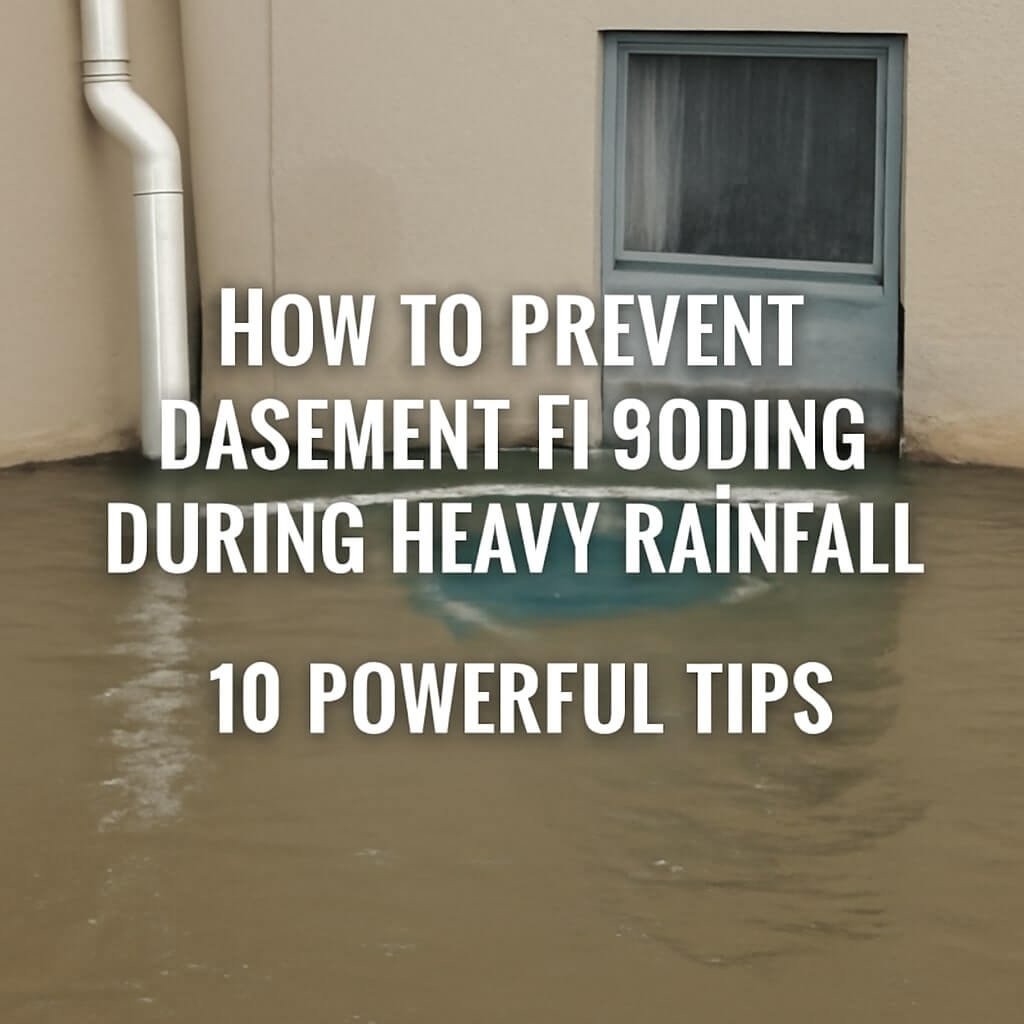Basement flooding during heavy rainfall can lead to costly repairs, health hazards, and stress. Understanding how to prevent basement flooding during heavy rainfall is crucial for homeowners looking to protect their property and peace of mind. In this comprehensive guide, you’ll discover practical tips, expert advice, and preventive strategies to keep your basement dry, even during the worst storms.
Understanding Basement Flooding

Before diving into prevention methods, it’s essential to understand what basement flooding is and why it happens. Basement flooding occurs when water infiltrates your basement through cracks, porous walls, faulty drainage, or sewer backups during heavy rain or snowmelt.
Common Causes of Basement Flooding
- Poor drainage systems: Blocked or clogged gutters and downspouts can cause water to pool around your home’s foundation.
- Foundation cracks: Small gaps in walls or floors allow water seepage.
- Sump pump failure: If your sump pump fails or isn’t installed, water accumulates.
- High water table: Areas with naturally high groundwater levels can experience seepage.
- Improper landscaping: Soil that slopes toward the house channels water to the foundation.
- Sewer backups: Heavy rains can overwhelm municipal sewer systems, causing sewage to back up into your basement.
Assessing Your Basement’s Flood Risk
Signs of Potential Flooding
Keep an eye out for these warning signs:
- Damp or musty odors
- Water stains on walls or floors
- Mold or mildew growth
- Efflorescence (white powdery deposits)
- Cracks in basement walls or floors
- Sump pump running constantly
Importance of Soil and Landscaping
Your yard’s grading and soil type significantly affect drainage. Clay soils hold water longer, increasing flood risk. Proper grading should slope away from your house at a minimum rate of 6 inches over 10 feet to divert water.
Power Tips to Prevent Basement Flooding
1. Maintain Gutters and Downspouts
Regularly clean gutters and downspouts to prevent blockages. Downspouts should direct water at least 3-4 feet away from the foundation.
2. Grade Your Landscape Away from the House
Ensure soil slopes away from your home’s foundation. Consider adding topsoil if necessary to improve slope.
3. Install a Sump Pump
A sump pump helps remove water accumulating in your basement’s sump pit. Opt for a pump with battery backup for power outages during storms.
4. Seal Basement Cracks
Use hydraulic cement or epoxy injections to seal cracks in walls and floors to prevent water seepage.
5. Waterproof Basement Walls
Apply waterproof coatings or membranes to the interior or exterior basement walls to create a moisture barrier.
6. Use French Drains
French drains redirect water away from your home’s foundation by channeling it through a perforated pipe surrounded by gravel.
7. Install Window Well Covers
Protect basement windows with covers to prevent water from pooling and leaking in.
8. Inspect and Maintain Sewer Lines
Have a professional inspect sewer lines to avoid blockages that cause backups during heavy rain.
9. Use Backflow Valves
Install backflow prevention valves in your sewer line to stop sewage from flowing back into your basement.
10. Regular Maintenance and Professional Inspections
Routine inspections by waterproofing experts help identify and fix problems before flooding occurs.
Common Mistakes to Avoid
- Ignoring minor water leaks or dampness
- Relying solely on interior waterproofing
- Neglecting gutters and drainage maintenance
- Overlooking sump pump battery backup needs
- Not addressing landscaping issues properly
Frequently Asked Questions (FAQs)
How often should I inspect my sump pump?
Can landscaping alone prevent basement flooding?
Is waterproof paint effective?
When should I call a professional?
Does a homeowner’s insurance cover basement flooding?
Can a sump pump prevent all flooding?
Conclusion
Preventing basement flooding during heavy rainfall requires a multi-layered approach involving proper maintenance, smart landscaping, and effective waterproofing. By following these 10 powerful tips, you can protect your home from water damage, save on costly repairs, and ensure a dry, safe basement no matter how heavy the rain gets. Start today, and don’t wait for the next storm to remind you!



